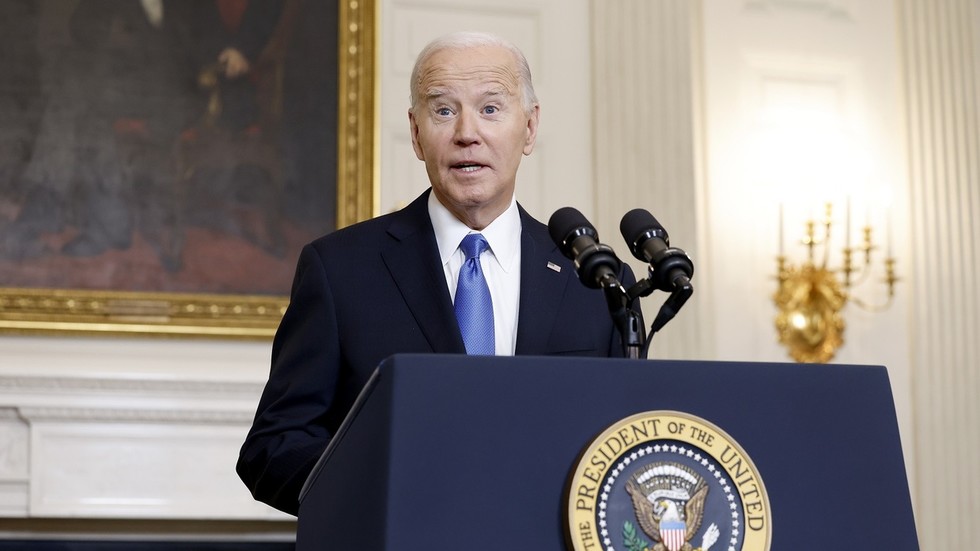
Speaker Mike Johnson is opposing the draft legislation over its failure to address border security

US President Joe Biden speaks after the Senate’s passage of the National Security Supplemental Bill on February 13, 2024. © Anna Moneymaker / Getty Images
US Democrats are piling the pressure on Republican House Speaker Mike Johnson to put to the floor a foreign security assistance package, which includes more than $60 billion for Ukraine.
The bill was passed by the Senate on Tuesday, after a group of Republicans broke ranks with their party to side with the Democrats, passing the 60-vote threshold. President Joe Biden then urged the House to follow suit, claiming that stalling the bill would play into the hands of Russian President Vladimir Putin.
”Are you going to stand up for freedom, or are you going to side with terror and tyranny? Are you going to stand with Ukraine, or are you going to stand with Putin? Will we stand with America or – or with Trump?” he asked lawmakers.
Former President Donald Trump has repeatedly criticized the administration’s handling of the hostilities in Ukraine, insisting that he could wrap up the conflict in 24 hours if he were in office.

Read more
Biden said the bill already has enough supporters in the House and urged Johnson not to stand in the way. Ukraine’s President Vladimr Zelensky has also weighed in, calling aid to his country a “strong moral choice” for the US that would benefit “our shared security”.
However, the House speaker has so far resisted the funding request, which contains no money for border security. Senators “should have gone back to the drawing board to amend the current bill to include real border security provisions,” Mike Johnson said in a statement. The lower chamber “will have to continue to work its own will on these important matters,” he added.
Republicans previously rejected another proposal, which tied an immigration overhaul to foreign assistance, stating that draft reforms did not go far enough. Democrats have accused Republicans of caving into pressure from Donald Trump, who supposedly saw the bill as unfavourable to his election campaign.
READ MORE: Biden rips Trump over ‘un-American’ NATO stance
According to The New York Times, Democratic representatives and their Republican allies plan to overcome Johnson’s resistance through a procedural maneuver called a discharge petition. It allows legislation to be forced to the floor, after a majority of the House, or 218 members, sign a petition for such an action.




